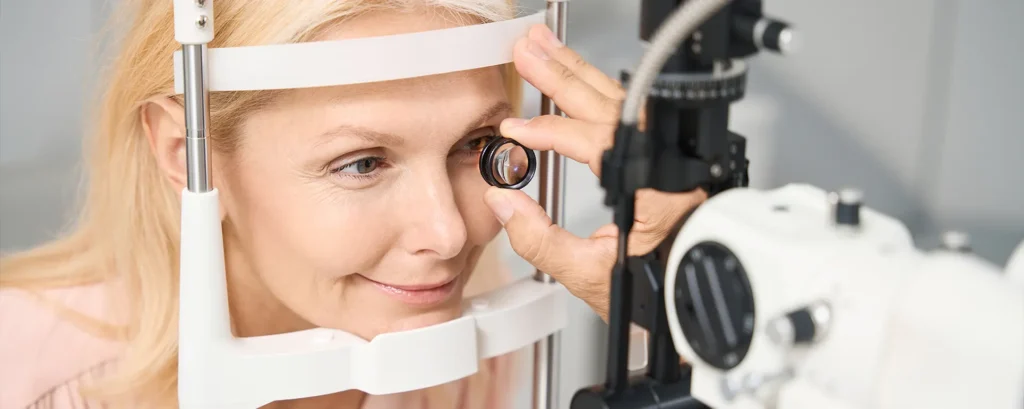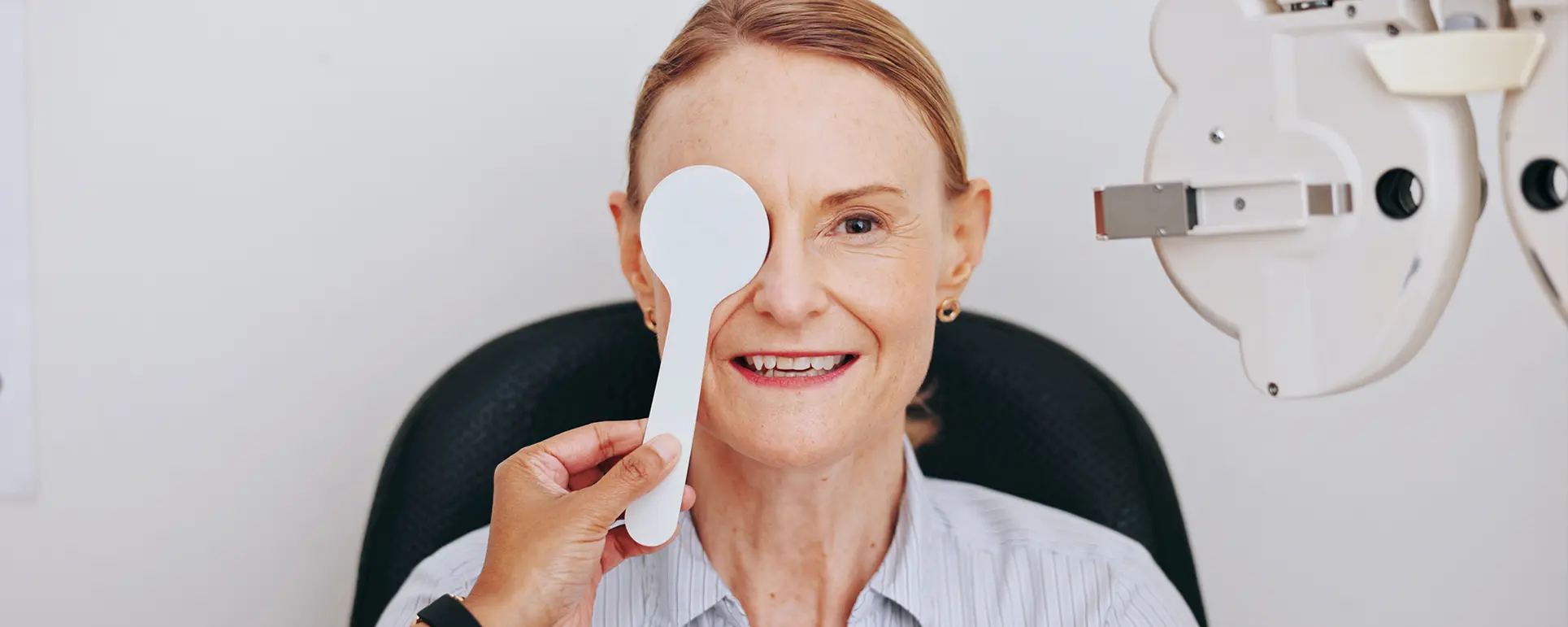If you’ve been diagnosed with cataracts—or you’re recovering from cataract surgery—it’s completely normal to wonder how your vision changes might affect your job. Many people worry about whether they’re legally protected, if they have to tell their employer, and what kind of adjustments they can ask for. The good news is that UK law offers strong protections for anyone whose eyesight issues make work more challenging.
Let’s go through exactly what the law says, how the Equality Act 2010 applies to cataracts and post-operative vision, and what your rights really look like in everyday work situations.
How the Equality Act Protects Employees with Cataracts
The Equality Act 2010 is the main piece of legislation in the UK that protects people from discrimination at work. It covers recruitment, pay, promotion, dismissal, and day-to-day working conditions. One of its key features is that it requires employers to support employees who have a disability—which can include cataracts, depending on how much the condition affects your daily life.
Under the law, a disability means a physical or mental impairment that has a substantial and long-term adverse effect on your ability to carry out normal day-to-day activities. Vision problems clearly fall under this category, so cataracts can qualify if they meet those criteria.
When Cataracts Count as a Disability

The term “substantial” simply means that your vision problems are more than a minor inconvenience. If you struggle with glare, have difficulty reading or seeing clearly in low light, or feel unsafe driving at night, that may be considered substantial. “Long-term” generally means lasting at least 12 months—or likely to do so. Because cataracts develop gradually and often affect both eyes over time, they usually meet this threshold.
Even if you’ve had surgery, recovery periods and post-operative sensitivity to light or blurred vision can still bring you under the scope of the Act. The focus is not on the medical label but on how the condition impacts your ability to work and function normally.
Why This Matters at Work
Once your condition meets the definition of a disability, your employer has a legal duty to make what are called “reasonable adjustments.” These are changes designed to reduce any disadvantage you face compared with other employees. The Equality Act doesn’t just prevent discrimination—it actively requires employers to take steps to help you do your job effectively.
What Reasonable Adjustments Might Look Like
Reasonable adjustments can take many forms, depending on your job and the kind of vision issues you’re dealing with. The idea is to remove practical barriers that make your work harder because of your eyesight.
Examples of Adjustments for Cataracts
- Improved lighting: Many people with cataracts or light sensitivity benefit from adjustable or softer lighting, anti-glare screens, or blinds to control natural light.
- Larger print or screen magnification: Simple changes like larger font sizes, high-contrast settings, or magnifying software can make a big difference for reading or computer work.
- Flexible work hours: If your vision is worse at certain times of the day, especially before or after surgery, adjusting your start or finish time can help.
- Temporary changes to duties: If your role involves tasks that are unsafe or difficult with limited vision (like driving or machinery use), you can request alternative work until your vision improves.
- Extra breaks: Cataract-related eye strain can be exhausting. Regular breaks help reduce fatigue and maintain comfort during the day.
What’s Considered “Reasonable”
Employers are only expected to make changes that are practical, affordable, and effective. A large company is expected to do more than a small one, but every employer has to show that they’ve considered your needs and taken reasonable steps to support you.
If your employer refuses to make adjustments without good reason, this could amount to disability discrimination under the Equality Act.
Disclosing Cataracts to Your Employer

Many people feel uneasy about disclosing a medical condition at work. But when it comes to cataracts, openness usually works in your favour.
Do You Have to Tell Your Employer?
There’s no blanket rule that forces you to disclose a medical condition unless it affects your ability to do your job safely. However, if you want the protection of the Equality Act and to request reasonable adjustments, you’ll need to tell your employer—or at least someone in HR or occupational health.
The key is to share enough information for them to understand how your vision affects your work. You don’t have to go into medical detail; just focus on the practical impact. For example:
“I’m currently managing cataracts which make reading small text and working in bright light difficult. Could we explore lighting changes or a screen magnifier?”
That level of honesty helps your employer support you properly while keeping the conversation focused on solutions, not symptoms.
Confidentiality
Employers must treat health information as confidential under data protection law. It can’t be shared without your consent unless it’s necessary for safety or compliance with regulations (for example, if you drive for work and your eyesight doesn’t meet DVLA standards).
Occupational Health and Cataracts
If you disclose a vision problem, your employer might refer you to occupational health (OH). This isn’t meant to be intimidating—it’s a standard process to ensure your role and your health are compatible.
An occupational health clinician will assess:
- How your cataracts or surgery recovery affect your vision and daily work tasks
- Whether you meet any professional or legal vision standards (especially if you drive or operate machinery)
- What adjustments could help you continue safely and effectively
The OH report usually goes back to HR or management with recommendations. You’re entitled to see it, and you can challenge any part you believe is inaccurate or unfair.
Safety-Critical Roles and Vision Standards
Some jobs in the UK require a specific level of eyesight by law. Examples include professional drivers, pilots, and certain healthcare or construction roles.
Driving-Related Work
If you drive as part of your job, the DVLA has minimum eyesight standards that must be met. For most drivers, this means being able to read a car number plate from 20 metres away (with glasses or contacts if needed) and having a visual acuity of at least 6/12.
After cataract surgery, most people meet these requirements easily once healing is complete. However, if your vision doesn’t yet meet the standard, your employer may need to temporarily redeploy you to non-driving tasks.
Other Regulated Occupations
If you work in aviation, maritime, rail, or emergency services, separate medical fitness standards may apply. These are usually stricter than general employment rules and focus on safety rather than disability. Still, your employer must treat you fairly and explore adjustments wherever possible.
When Employers Get It Wrong
Unfortunately, not every employer understands their legal duties. Some may assume that vision problems automatically make you unfit for work, or they might try to avoid dealing with the issue altogether.
Common problems include:
- Refusing reasonable adjustments because “it’s too much hassle”
- Pressuring you to take unpaid leave while you wait for surgery
- Ignoring medical advice from your doctor or occupational health
- Making negative comments about your vision or capability
If this happens, it may amount to disability discrimination. The Equality Act protects you from being treated unfairly because of your condition, whether directly (for example, dismissal) or indirectly (through policies that disadvantage you).
You have several options: informal resolution through HR, a formal grievance, or legal action through an employment tribunal. Keep written records of conversations, emails, and medical notes—they can make a big difference if things escalate.
Returning to Work After Cataract Surgery
Most people can return to work within a week or two after cataract surgery, depending on their job. However, recovery speed varies. You may have temporary restrictions on heavy lifting, exposure to bright lights, or dusty environments.
If your job involves driving, machinery, or safety-critical tasks, you’ll need medical clearance first. Employers should be flexible—offering lighter duties or adjusted hours until your vision stabilises.
A gradual return (sometimes called a “phased return to work”) can be arranged through occupational health, ensuring you’re not overloaded while still healing.
Practical Tips for Managing Cataracts at Work
- Get a detailed eye report. Ask your optometrist or ophthalmologist for a letter explaining how your vision is affected and what lighting or contrast settings help.
- Speak early. The sooner your employer knows, the more time they have to plan adjustments.
- Keep communication open. Regular updates on your progress—especially after surgery—build trust and prevent misunderstandings.
- Know your rights. You’re protected from dismissal, demotion, or harassment linked to your cataracts.
- Seek advice if unsure. ACAS (Advisory, Conciliation and Arbitration Service) and charities like RNIB can offer confidential guidance.
When Cataracts Affect Your Job Security
If your vision temporarily prevents you from performing essential duties, your employer still can’t dismiss you automatically. They must explore all reasonable alternatives—such as different tasks, short-term adjustments, or medical leave—before even considering termination.
Dismissal should only be a last resort, and only if adjustments can’t reasonably be made. Even then, you’re entitled to notice pay, accrued holiday pay, and possibly redundancy or disability dismissal rights depending on the situation.
If you’re dismissed and believe your employer didn’t follow the law, you can take your case to an employment tribunal within three months of the termination date.
Support and Resources
Several UK organisations provide advice and advocacy for people with vision impairments at work:
- RNIB (Royal National Institute of Blind People): Free legal and workplace support for employees with eye conditions.
- ACAS: Government-funded advice on workplace disputes and disability rights.
- EHRC (Equality and Human Rights Commission): Guidance on discrimination and how to enforce your rights.
- Citizens Advice: Free help with understanding your rights and how to raise a grievance.
FAQ Section
1. Do cataracts count as a disability under UK law?
Yes, cataracts can be considered a disability under the Equality Act 2010 if they have a substantial and long-term effect on your daily life. “Substantial” means your vision problems go beyond minor inconveniences—like struggling to read small print, coping with glare, or feeling unsafe in certain lighting. “Long-term” means the issue lasts or is expected to last at least 12 months. Because cataracts develop gradually and often affect both eyes, they usually meet this definition. Even if you’ve had surgery, ongoing visual issues such as light sensitivity or blurriness can still keep you within the protection of the Act.
2. Do I have to tell my employer that I have cataracts?
You’re not legally required to disclose a medical condition unless it affects your ability to carry out essential parts of your job safely—for example, if you drive or operate machinery. However, if you want legal protection under the Equality Act or need adjustments to help you at work, disclosure is essential. You don’t need to share detailed medical information—just enough for your employer to understand how your vision affects your work. This helps them put suitable measures in place and demonstrates that you’re being proactive and responsible.
3. What reasonable adjustments can I ask for if I have cataracts?
Reasonable adjustments depend on your job role and the nature of your vision problems. Many employees benefit from practical changes such as anti-glare screen filters, larger text displays, improved lighting, or flexible hours to avoid driving in low light. Temporary changes to duties, especially around machinery or driving, can also be arranged. What’s considered “reasonable” depends on the employer’s size, resources, and the effectiveness of the change. If your request is refused, your employer must be able to justify why it’s not reasonable or practical.
4. Can my employer dismiss me because of cataracts?
Your employer cannot legally dismiss you just because you have cataracts or related vision issues. Before any dismissal can even be considered, the employer must explore all possible adjustments or alternative arrangements that would allow you to continue working safely and effectively. If you’re dismissed without this process being followed, it could amount to disability discrimination or unfair dismissal. In such cases, you may have grounds to raise a formal grievance or even pursue an employment tribunal claim.
5. What if I’m still recovering from cataract surgery?
If you’ve recently had cataract surgery, your employer should treat your recovery as part of your medical needs. You’re entitled to reasonable time off for surgery and post-operative appointments. Many people experience temporary light sensitivity or blurriness in one or both eyes after surgery, so adjustments such as reduced screen time, shaded lighting, or modified duties may be required. Returning to work should be discussed with your doctor and occupational health, ensuring your role matches your current visual comfort and ability.
6. What should I do if my employer refuses to make adjustments?
If your employer refuses reasonable adjustments, try resolving the issue informally first—explain how the lack of support is affecting your ability to work. If nothing changes, you can raise a formal grievance in writing. It’s a good idea to keep records of all communication, medical letters, and adjustment requests. If the issue still isn’t resolved, you can seek external help from ACAS or Citizens Advice. Ultimately, you can take legal action through an employment tribunal for disability discrimination, but early negotiation is usually faster and less stressful.
7. What role does occupational health play in this process?
Occupational health (OH) specialists help employers understand medical conditions and how they affect work. If you’re referred to OH, they’ll review your vision reports, talk through your job duties, and recommend adjustments or temporary changes. Their role is to support both you and your employer in creating a safe and sustainable work plan. You have the right to see your OH report and request corrections if you believe something is inaccurate or unfair. The aim is not to label you as “unfit” but to help balance health, safety, and performance.
8. Can I still drive for work if I have cataracts?
You can usually continue driving if your vision meets the DVLA’s minimum eyesight standards—being able to read a number plate from 20 metres away and having at least 6/12 vision in both eyes, with glasses or contacts if needed. Many people with early cataracts still meet this standard. However, if your sight falls below it, you’ll need to stop driving until treatment restores your vision. After surgery, most patients quickly regain legal driving vision, but your employer should offer non-driving duties or adjusted work while you recover.
9. Am I entitled to paid time off for cataract surgery?
Time off for cataract surgery and related appointments counts as medical leave. Whether it’s paid or unpaid depends on your contract and company policy. Some employers treat hospital appointments as paid leave, while others require you to use annual or unpaid leave. Either way, the law expects employers to be reasonable and flexible, especially since surgery is medically necessary. Always give as much notice as possible and provide confirmation from your hospital or surgeon to keep everything transparent.
10. Where can I get help or advice about my rights?
Several organisations can guide you through your rights at work if you’re dealing with cataracts. ACAS offers free, impartial advice on workplace disputes. RNIB provides specialist support for employees with sight loss, including legal advice. Citizens Advice can help you understand your rights and draft formal letters if needed. And if things escalate, you can also consult a solicitor specialising in employment or disability law. These resources can help you protect your position while keeping communication with your employer constructive.
Final Thoughts
Living or working with cataracts doesn’t mean you have to struggle in silence or worry about losing your job. The law is on your side—and your employer has a clear responsibility to support you. Whether you’re waiting for surgery, recovering from it, or adjusting to changes in your vision, you’re entitled to fair treatment and reasonable adjustments that let you do your job safely and confidently.
So, if you’ve been hesitant about discussing your vision at work, take that first step. Being open helps you access the support you’re legally entitled to and makes day-to-day work much easier. And if you’re considering treatment, the team at London Cataract Centre can guide you through your options—from diagnosis to surgery—ensuring your vision and recovery align with your lifestyle and work needs.
References
- Equality and Human Rights Commission. (2023). Your rights if you’re disabled at work. [online] Available at: https://www.equalityhumanrights.com
- ACAS. (2023). Disability discrimination at work. [online] Available at: https://www.acas.org.uk
- GOV.UK. (2024). Disability and reasonable adjustments. [online] Available at: https://www.gov.uk/reasonable-adjustments-for-disabled-workers
- RNIB. (2024). Employment rights for people with sight loss. [online] Available at: https://www.rnib.org.uk
- DVLA. (2024). Driving eyesight rules. [online] Available at: https://www.gov.uk/driving-eyesight-rules

